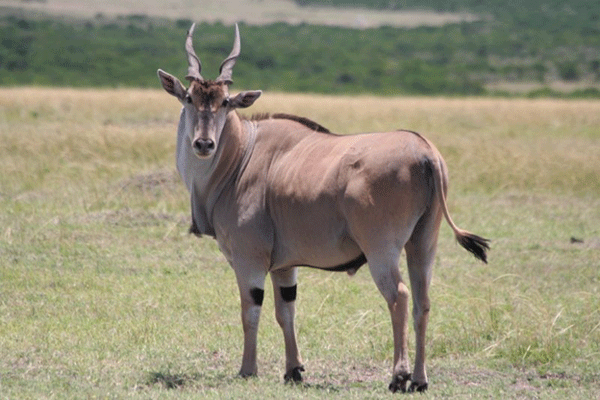
Irecently bumped into an elderly man who still holds the issue of totems in very high esteem and places so much importance in the observation of the rituals and taboos associated with the issue.
laughing it off with Blaah Dhee

To him, the majority of the societal ills that are bedevilling the country today have so much to do with our disrespectful way of doing things in as far as our totems are concerned. For instance, long ago those of the same totem were forbidden from marrying each other.
Marriage between people of the same totem was not allowed at all as it was thought to result in a weaker species being born out of such coming together in matrimony. Besides being physically weak, such children (born of such marriage) were usually a source of trouble to the parents and society at large.
Years back, when living traditions were strictly adhered to, a marriage of that nature would require a special cleansing ceremony to solemnise the union in order to appease the ancestral spirits who would have been angered by such unbecoming behaviour.
The ceremony included among other rituals, the slaughtering of a white beast; referred to as mombe yecheka hukama.
It signified the termination of all relations between the two wedded parties in as far as the totem was considered.
This, the old man told us to demonstrate how much importance our forefathers placed on the issue. The rituals, taboos and other practices to do with totems were strictly observed and followed to the word.
- Chamisa under fire over US$120K donation
- Mavhunga puts DeMbare into Chibuku quarterfinals
- Pension funds bet on Cabora Bassa oilfields
- Councils defy govt fire tender directive
Keep Reading
As we continued listening to the wisdom of the old man, I could not help noticing that my folks became captivated when he began telling us about characteristics and origins of the Mhofu and Gumbo totems.
He started off with the Gumbo totem. Those of the said totem are forbidden from consuming meat from the legs of any animal as the “leg” is supposed to be the emblem for the Gumbo totem. Similarly, those of the Mhofu totem regard the Eland sacred as it symbolises their totem.
However, it is common to find those of the Gumbo totem feasting on chicken legs or even clamouring for mazondo/amangqina (ox legs) at drinking outlets or functions. This is due to the fact that the “leg” their totem refers to is not the actual leg as you and I thought.
It is said that the original forefather of the clan was so gifted in terms of his manhood. He had a massive weapon, so big that for want of respect, people referred to it as his other leg-a third leg, henceforth his clan became known as the Gumbo clan.
This “third leg” made him very popular among members of the opposite sex. He was highly on demand owing to his manhood as women hired him for his services with the “third leg”. This popularity saw him being labelled a woman snatcher.
It is against that background that today we hear people refer to those of the Gumbo totem as, Madyirapanze, chitova nedzevamwe. Loosely translated it means the one that provides sexual satisfaction to other peoples’ women.
As for the Mhofu totem, whether male or female, they are all bulls. They are all referred to as Mhofu Yemukono, meaning Eland bull. The females are more commonly known as Chihera. These, as purported by the totem are men unto themselves. Most men out there who are married to the female Mhofu can bear testimony to this characteristic as obtaining in the Chiheras.
They overrule everybody in their wake, husbands, brothers and even their fathers. In their matrimonial homes what Chihera says goes. Regardless of her being away and now having her own home, she still wants to have a say to all that goes on at her maiden family.
Whenever you come across a group of women, chances are that the most vocal or the one delegating duties to the others is a Chihera. Such is the character of the females of the Mhofu totem.
As for the male Mhofus, they are masters in the matters of the heart. However, they are not womanisers as such, but are so romantic that once a woman falls into their love tentacles, it becomes a mammoth task to untangle her. They know no boundaries when they fall in love.
Like their sisters, the Mhofus have a knack for leadership. They tend to be good organisers, but lack the finishing touch. In this sphere they can be equated to a soccer team that is so good in all other departments but falters when it comes to scoring — they miss more than they score.
It is because of this short coming on the part of those of the Mhofu totem, that today we find people referring to all business ventures that are not run properly and struggle all the way as zvimabusiness zvanaMuseyamwa. (Businesses owned by those of the Mhofu totem).
This also goes on to demonstrate how enterprising those of the Mhofu totem are. Visit any community and you are bound to find that most businesses are owned by the Mhofus.
Above all, be they male or female the Mhofus have abundant love for each other. They identify with their totem so much that they are found everywhere. At times you would be excused to assume that for every 10 people you come across, two are of the Mhofu totem.











